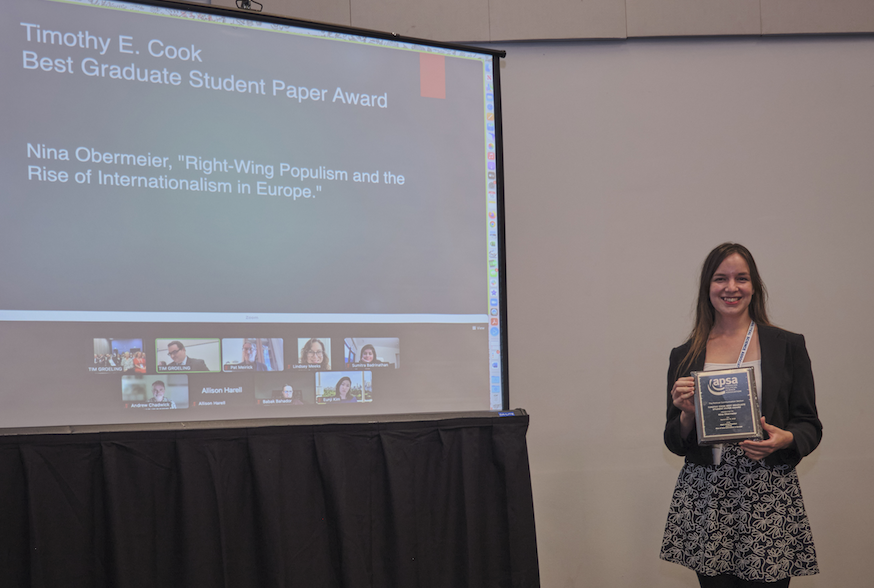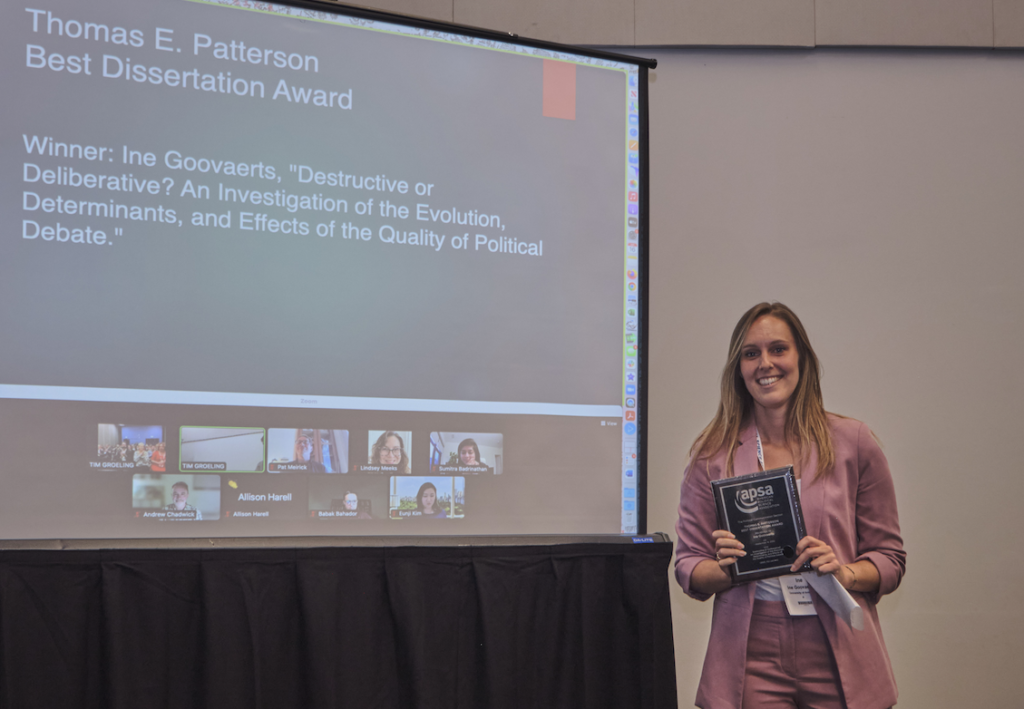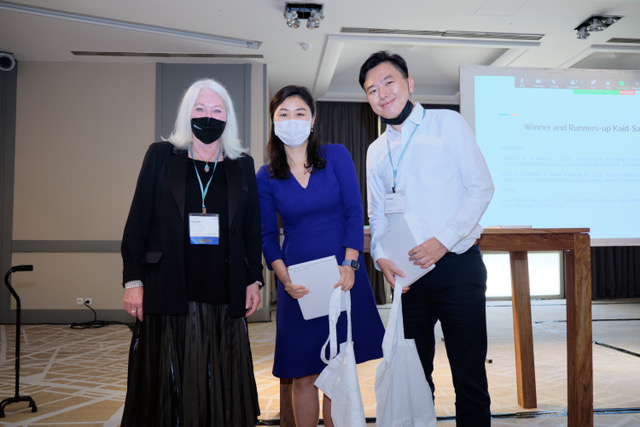PCR Awardee Questionnaire: Timothy E. Cook Best Graduate Student Paper Award (2022)
Name(s) & affiliation:
- Nina Obermeier, University of Pennsylvania
Project title:
- Right-Wing Populism and the Rise of Internationalism in Europe
Tell us something about you/your team and how and why you decided to focus on this research
- I am currently an ISCAP Postdoctoral Research Fellow at the University of Pennsylvania. Later this year, I will join the Department of Political Economy at King’s College London as a Lecturer (Assistant Professor). I completed my PhD at Cornell University in 2022.
This research was part of my dissertation project. In working on this project, I was motivated by concerns about the rise of the populist radical right – especially in Western Europe – and by the idea that this reflected a popular backlash against globalization. When I started looking at trends in public opinion data from countries in which the populist radical right was ascendant, I was surprised by the fact that, in each of them, public opinion was in fact becoming more positive toward immigration, the European Union (EU), and globalization. That puzzling observation launched the entire project.
In 280 characters or less, summarize the main takeaway of your project.
- Why is public opinion becoming more internationalist at a time when the anti-internationalist populist radical right is surging? The populist radical right makes anti-internationalism part of its extremist brand, turning those who reject extremism into internationalists.
What made this project a “polcomm project”?
- Fundamentally, this is a project about how both party communication strategies and media coverage shape public opinion. I make extensive use of media data to test my argument, primarily by using supervised machine learning on European newspaper articles to construct measures of the extent to which Euroskepticism is linked to right-wing extremism in media discourse.
What, if anything, would you do differently, if you were to start this project again? (What was the most challenging part of this project? …& how did you overcome those challenges?)
- The project improved tremendously once I began engaging more seriously with the many different subfields and disciplines that are relevant to the project. I was able to draw important insights from fields such as American politics, comparative politics, international political economy, sociology, social psychology, and, of course, political communication, which strengthened the project immeasurably.
What other research do you currently see being done in this field and what would you like to see more of in the future?
- What one might call the “second wave” of studies on the backlash against globalization is producing exciting new research that lies at the intersection of several different fields of study. Researchers are looking more closely at the role of gender, race, technology, political elites and advertising, and climate change, while at the same time expanding the scope of these studies to look beyond Western democracies.
I look forward to seeing even more interdisciplinary work in this field, making the boundaries between subfields and disciplines more porous, and allowing for richer cross-fertilization of ideas.
What’s next? (Follow-up projects? Completely new direction?)
- I am currently preparing the paper for publication as well as developing a book manuscript that explores the theme of anti-internationalism as extremism in greater detail. I am also working on two follow-up projects. The first investigates how the linking of anti-internationalism with right-wing extremism has helped close the gender gap in support for globalization, while the second explores how the rise of the populist radical right shapes attitudes toward internationalism among individuals with a migrant background.



